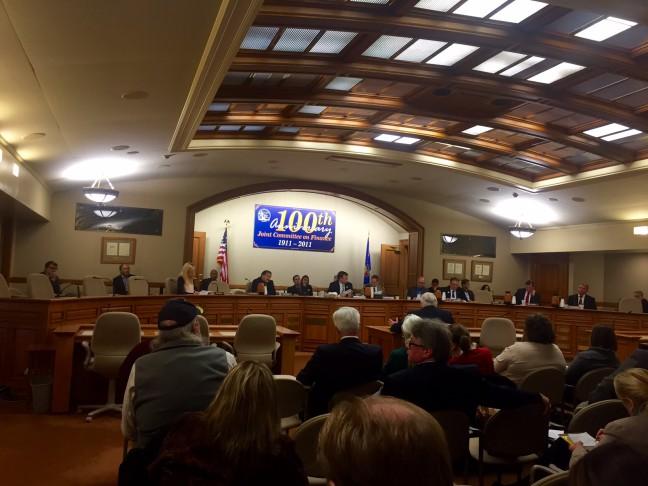The Assembly Committee on Housing and Real Estate debated a new bill that would change the tenant-landlord relationship in Wisconsin in a public hearing Thursday.
Rep. Robert Brooks, R-Saukville, introduced the bill, which revises various landlord-tenant laws. One of the biggest provisions the bill provides is a one-strike eviction policy for tenants engaging in criminal activities on the building’s premises.
The bill would speed up the eviction process by allowing landlords to serve eviction notices for criminal activity, Brooks said at the hearing.
“[The bill] includes a provision ensuring the safety of tenants by expediting the process of by which those involved in criminal or drug-related activity that threatens the health and safety of those around them are removed from the property,” Brooks said.
Even though it is a one-strike policy, he said the landlord must specify the grounds for eviction in the notice, and tenants would have the right to contest it.
Ald. Zach Wood, District 8, and spokesperson for the Madison City Council, said this bill could pose a big problem for college students living in apartments and rented houses. He said activities considered standard routine in college, like parties, could be used for cause for eviction, which would contribute to student homeless.
Wood said the landlord-tenant laws have been changed so many times that it’s nearly impossible for college students to keep up with them. He said these laws have been revised about four times since 2011.
Victoria Selkowe, director of legislative, rulemaking and training compliance at Legal Action, said at the hearing the broad definition of “criminal activity” in the bill would allow landlords to arbitrarily evict tenants for minor offenses.
“Criminal activity as the bill is currently drafted is far too broadly defined,” Selkowe said. “Virtually any action perceived to be criminal by the landlord, or neighbors, or anyone else could be seen as a threat, in this case to health or safety or peaceful enjoyment, and could be grounds for eviction.”
Selkowe said the bill needs to be modified so tenants are not evicted unnecessarily. She said even though the bill requires landlords to specify the reason for the eviction notice, the reason could be vague.
But Tristan Pettit, landlord-tenant law attorney at Petrie and Stocking S.C., said at the hearing under current law landlords do not have the power to evict tenants who pose a danger to other residents. This bill provides a good solution, he said.
“We cannot protect the other tenants,” Pettit said. “This bill allows us to get bad tenants that engage in bad activity out of the property so that other tenants can be protected.”
The bill would also expand the amount of necessary inspections to all dwellings, not just those that are non-owner occupied.
La Crosse Mayor Tim Kabat said the bill would increase state government intrusion by limiting the powers of local government, who already have good laws in place to regulate rental housing. He said local leaders know what’s best for their communities, and expanding the rental inspection program to the state level would make it more costly and ignore the needs of individual districts.
The bill still has to be heard in an Assembly Committee on Housing and Real Estate executive session before it can reach the chamber’s floor.


